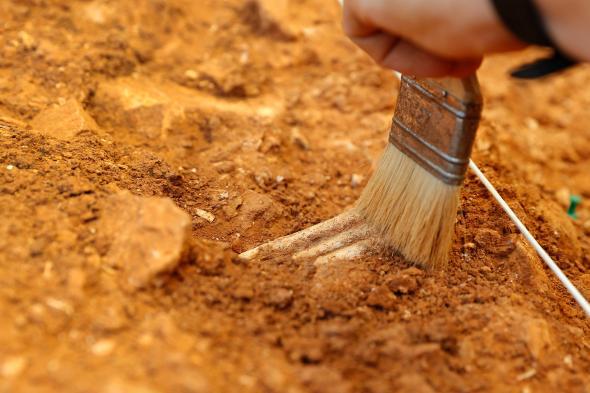Scientists reported a new discovery on Wednesday that could offer new insights into the origins of humans. In the scientific journal Nature, scientists reported they were able to extract human DNA from a thighbone found in Spain that is estimated to be 400,000 years old. That is the oldest known human DNA ever recorded, far surpassing the oldest DNA recovered previously, which dated back some 100,000 years. The fossil was found at the “Pit of Bones” archeological site in northern Spain and from its DNA researchers were able to replicate the entire genome of the early human.
Here’s more on what the discovery could mean for research on the evolution of humans via the Associated Press:
The genetic sequence surprised researchers, who thought it was likely that the sequence would reveal that remains were related to the Neanderthals. Instead, the genetic sequence revealed that this early human species is related to another genetic cousin of modern humans, the mysterious Denisovans. Little is known about the Denisovans, who are thought to have been common throughout the regions now known as Asia and Eastern Europe. This early human species was discovered after genetic sequencing was used to map DNA through the ancient pinkie bone of a girl in 2010. Anthropologists and genetic experts said the findings from the Pit of Bones could help shed light on how early human species evolved and spread across different continents.
“The mismatch between the anatomical and genetic evidence,” the New York Times reports, means “scientists are now rethinking human evolution over the past few hundred thousand years.”
